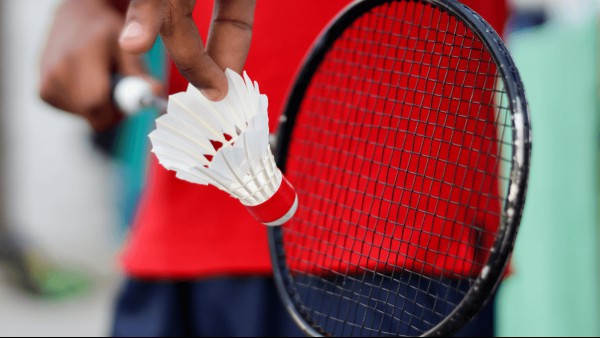Between the 8th century BCE and the 5th century CE, Ancient Greece was where the first athletic disciplines were performed. Two millennia later, you could say that the list of sports has grown a little (and with it, the sports etymology that reveals the linguistic clues to their origins). From words like “athletics” to “slalom” and “fencing,” let’s take a deep dive into the origins of the names and vocabulary associated with the most well-known sports.
Sports Etymology With Greek And Latin Origins
It was in the country of Zeus and Hercules that athletes participated in the first athletic competitions. So it’s not surprising that Ancient Greek has left its traces on a large number of traditional athletic disciplines:
-
- Athletics itself comes from the word “athlete” (ἀθλητής in Ancient Greek), which means “a champion in public competitions.” The greatest athletes in Ancient Greece are still known today thanks to stories from philosophers such as Plutarque and from the statues made in their honor. Traditionally, their names included the city they were from. Theagenes of Thasos, Chionis of Sparta, Milo of Croton, and Leonidas of Rhodes are a few of the greatest champions in the ancient games. Biathlon, triathlon, and pentathlon share the same etymology, combining sports according to their number in Greek (bi for two, tri for three, penta for five).
-
- Gymnastics comes from the Ancient Greek γυμνάζω (gumnazo, meaning “to practice”). Even though the word doesn’t mean the same thing anymore, originally, a gymnast was a coach to the athletes.
-
- Some languages also use a Greek word for weightlifting: haltérophilie in French and halterofilia in Spanish. It comes from ἁλτικός (haltikos), which means “an action done by jumps.” And then there’s φίλος (phílos), literally “one who loves,” which you can find in many other words ending in -phile or -philia (cinephile, francophile, etc.).
-
- The bicycle was invented in the 19th century, but it’s still a Greek word that was chosen for the sport: cycling. The word comes from Ancient Greek for circle (κύκλος, kúklos), from which we get both “bicycle” and “cycling.”
- The etymology for equestrian, on the other hand, comes from Latin, specifically from the word equus (horse).
Sports Etymology With English Origins
The Greek era is over. Today, English is the most common language for international communication, and its influence is apparent in sports as well:
-
- There are many names of sports that use the word “ball,” like baseball, basketball, football, softball, or volleyball. There’s just one -ball sport that doesn’t come from English, which we’ll get to later.
-
- Boxing naturally comes from the verb “to box” (as in, “to hit”). In Ancient Greece, fighting hand-to-hand was called pugilat, from the word pugnus. The athlete Theagenes of Thasos mentioned earlier was also one of the most famous and successful “pugilists” in Ancient Greece.
-
- Much more recently, since the term dates to the 1970s, BMX is an acronym from the term “bicycle motocross.”
-
- And legend has it that golf is an acronym for “Gentlemen Only, Ladies Forbidden.” We don’t actually know where the name of this sport comes from. It could come from an Old German word for stick, or from Dutch, or from Old Scottish Gaelic. What’s certain is that this sport became popular first in English before spreading around the world.
-
- The origins of hockey are similarly unclear. Could it be from the Old French hoquet (shepherd’s staff)? It was mentioned for the first time in English in the 17th century as “hockey.” And since then, it seems the whole world has started using that word. It’s one of the rare sports that has the same name in most languages.
- Other sports get their names from places in England, like the castle of Badminton in Gloucestershire, which gave its name to the eponymous racket sport. As for rugby, it was created in a college in the town of the same name in the West Midlands in the 19th century.
The Influence Of French
To a lesser extent, French is also part of the heritage of a number of sports, particularly in fencing. “En garde! Prêts? Allez! Halte!” Those are the words you hear referees shout when they’re overseeing a match, no matter where it is. That’s because French has been the only official language in fencing for more than a century. Referees are even required to pass a French exam before qualifying to oversee a match! Ironically, the word for fencing in French (escrime) comes from the Italian scrima, which is a way of handling a sword.
And surprisingly, tennis also has ties to French. Although it’s been given an English touch, the name comes from a French word you’ll still hear today: tenez (the second-person plural form of tenir, meaning “to hold”). It was used to address the adversary when serving in jeu de paume, an earlier sport that uses the palm of the hand to hit the ball. And that’s not all that’s been given the English touch in tennis — “love” was also originally a French word. When you’re counting points in tennis, the word “love” is used instead of zero. For example, a score of “30-0” is pronounced “thirty-love” and not “thirty-zero.” The origin has nothing to do with love in the romantic sense. At the time, the word l’œuf (egg) was used because its round shape resembled a zero.
Sports With Other Origins
Many other languages have influenced the collective sport lexicon:
-
- German contributed another sport ending in -ball, specifically handball, which certainly looks like it could have come from English.
-
- Japanese gave us judo, or “gentle way” (ju for gentle and do for path), as well as karate, or “empty hand” (kara for empty and te for hand).
-
- Taekwondo, another martial art, comes from the Korean expression for “the path of kicks and hits.”
-
- Slalom is a combination of the Norwegian words for descent (sla) and path (låm).
- As for kayak, the term comes from the Greenlandic qayaq (small boat of skins) via Danish. That just goes to show that even smaller languages have left their mark on today’s sports!
This article was originally published on the French edition of Babbel Magazine.











